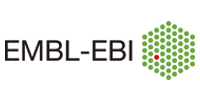 The International Mouse Phenotyping Consortium (IMPC): a large-scale functional catalogue of mammalian genes
The International Mouse Phenotyping Consortium (IMPC): a large-scale functional catalogue of mammalian genes
Date: 16 September 2020
The IMPC is an international research infrastructure, comprised by 21 of the leading mouse genetics centres worldwide, that is systematically identifying the function of every protein-coding gene in the mouse genome. Despite having sequenced the entire genomes of many species, the exact function of most genes remains unknown. To address this, the IMPC is coordinating the production of a knockout mouse strain per protein-coding gene, which are then characterised using a standardised, broad-based phenotyping pipeline, giving insights into the function for genes for which very little is known. Our open-access database now includes phenotyping data for nearly 6,500 mouse genes.
This webinar will discuss some of the exciting discoveries in genetic disease, development and sexual dimorphism that biologists and clinical researchers are making using IMPC resources. The IMPC strives to generate data that ultimately help understand human health and disease and identify new targets for therapeutic intervention. This data is also useful for research focusing on other mammalian species, including evolutionary research studies seeking to understand adaptation.
All IMPC data is freely available to use and can be accessed at www.mousephenotype.org. The IMPC would like to encourage researchers to get in touch via the IMPC website if they are interested in using IMPC data and would like further guidance on how to use our data.
Contact: Anna Swan - trainonline@ebi.ac.uk
Keywords: DNA & RNA (dna-rna), Proteins (proteins), UniProt: The Universal Protein Resource, Fermentation, Microbial ecosystems webinar, Antimicrobial resistance, Ensembl, BLAST, Open Targets Platform, Cross domain (cross-domain), Chemical biology (chemical-biology), Drug discovery, Drug target identification, UniRule, ARBA, Automated annotation, MetaboLights: Metabolomics repository and reference database, Chemical Entities of Biological Interest, ChEBI, Metabolites, Molecular building blocks of life, Human Cell Atlas Data Coordination Platform, Single-cell transcriptomics, HCA data portal, Programmatic access, API, Python, Complex Portal, macromolecular assembly, InterPro, Boolean modelling, Europe PubMed Central, Literature (literature), Open access, Protein Data Bank in Europe - Knowledge Base, 3D structure, AlphaFold Database, DeepMind, Artificial intelligence, AI, Structure prediction, cancer, Boolean, Ensembl Genomes, European Nucleotide Archive, Data archive, Raw sequencing data, RNAcentral, Non-coding RNA, ncRNA, GPU, Data protection, Job dispatcher, Bioimage analysis resource, Accessibility, Missense variation, Biostatistics, Rfam, non-coding RNA, Infernal software, Sequence annotation, Root microbiome, Abiotic stress, land management, Plant genotype, Plant webinar series, HPC, database development, cross-linked databases, Plant database, data infrastructure, Plant breeding, Data standards, data managemnet, data sharing, Hyb-Seq method, Flowering plants, Crop improvement, Pangenomics, Pangenomes, Virtual humans, Drug-target identification, plant-microbe interactions, Spatial transcriptomics, Plant research, Drug targets, Machine learning, Mathematical modelling, plant science, Data integration, plant-environment interaction, Phenotyping, field phenotyping, Deep phenotyping, EOSC-Life, NHGRI-EBI GWAS Catalog, clinical data, genome-wide association, plants, European Variation Archive, EVA, Variant clusters, Variant data annotation, Constraint-based metabolic modelling, UniProt knowledgebase, protein variant impact, disease-associated protein variants, Bioethics, FAIR principles, ELSI, cohort data, translational research, BioModels database, Mathematical modeling, Reproducibity, Systems biology models, workflows, federated analysis, polygenic risk scores, IntAct Molecular Interaction Database, PSICQUIC, IMEx, Complex portal, Agent-based modelling, Macrophages, Tumorigenesis, Training (Training), On-demand, teaching, introduction, Building blocks, Data analysis, COSMIC, Cancer mutation, Somatic mutation, ChEMBL: Bioactive data for drug discovery, Chemical compounds, drug-like molecules, Chemogenomics, Biocurator, Programming, Data management, Green Algorithms, Open data, Environmental impact, Carbon footprint, HPC workflows, Orchestrator, Gene expression (gene-expression), Chemosensitivity assay, Experimental protocols, Drug screening, MICHA, European Genome-phenome Archive, EGA, restricted access, UniProt, Introduction, UniProtKB, Proteome, Protein Data Bank in Europe, genes, Introductory, GDPR, Data security, Expression Atlas, Pfam, protein sequence search, Domain architecture, Protein taxonomy, AI structure prediction, COVID-19, Coronavirus, COVID-19 Data Portal, Virology, Computational simulations, Signalling prior knowledge, Cancer therapy response, PRIDE: The Proteomics Identifications Database, protein structure prediction, AI system, Competency framework, Publication, Journal club, Preprints, Aggregated view, Structural similarity, PPI networks, Cell signaling, Malaria, Biological networks, Graph theory, Building biological networks, Biocuration, Information Manager, Industry, Rare-variant, Variant association, SKAT, Sensitive data, Human cohort data, FAIR, Gene Ontology, International Mouse Phenotyping Consortium Portal, Biocurators, biocuration, programming skills, training, career development, Cell-level simulations, Personalised medicine, PerMedCoE, Single cell, Phenotype, Genome-Wide Association Studies, Genome, Signaling networks, BioImage Archive, REST, Funding, UniChem: Chemical Structure Cross-referencing, Bioactivity data, Drug-like compounds, BioStudies Database, EBI Search, Finding data, World Sight Day, Eye development, Eye disease, Open software, Metadata, Web Services, Dbfetch, Database fetch, programmatic access, Open Targets, Protein structure prediction, Colab notebooks, RESTful API, RESTful Web Services, PDBe, Ligand binding sites, Protein families, Protein functional analysis, Protein sequences, Data curation, Biomolecular sequences, Cytoscape, PsyArXiv, Psychology, Bioactive data, Drug-like molecules, Biological studies, Literature, Neurodegenerative disorders, Data sharing, Molecular visualisation, Molecular structures, Electron density maps, EBI BioSamples Database, BioSamples, Data Use Ontology, DUO, ELIXIR, Ensembl Variant Effect Predictor, Variant Effect Predictor, VEP, Variation data, Annotation, SciLite annotation, Text mining, MGnify, Microbiome, Environment, Proteomes, Variant data, Publications, Citations, UniProt Disease Portal, ENA Sequence Search, Reactome pathways database, ReactomeGSA, Pathway analysis, Single cell RNA-seq, Multiomics, Data visualisation, GitHub, Graph database, protein, Gene function, Mouse models, IMPC, Mammalian Phenotype Ontology, Mouse knockouts
Organizer: European Bioinformatics Institute (EBI)
Host institutions: EMBL-EBI
Capacity: 200
Event types:
- Workshops and courses
Scientific topics: Genotype and phenotype, Animal study, Genetics
Activity log

 EMBL-EBI
EMBL-EBI
